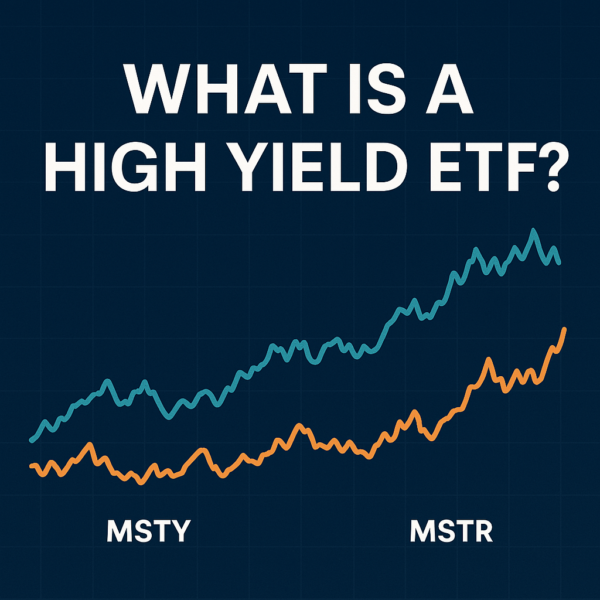5 Small Cap ETFs to Keep an Eye on This Year
Betting on a single stock can be risky. Returns are never guaranteed. So small cap ETFs can be one of the best ways to lower risk and generate long-term wealth.

Exchange-traded funds (ETFs) pool money from many investors and hold a collection of securities. The funds invest according to their stated objectives. For example, small cap ETFs tend to invest in companies with market caps between $300 million and $2 billion.
Small companies tend to have higher growth potential. This can mean higher returns for investors. That’s why they continue to be popular investments.
The funds below hold baskets of stocks from different industries. They’re some of the top small cap funds available today…
Top 5 Small Cap ETFs
- Vanguard Small-Cap ETF (NYSE: VB)
- Vanguard Small-Cap Value ETF (NYSE: VBR)
- Amplify Seymour Cannabis ETF (NYSE: CNBS)
- iShares Morningstar Small-Cap Growth ETF (NYSE: ISCG)
- MFAM Small-Cap Growth ETF (BATS: MFMS)
If you’re looking to maximize your capital gains, these ETFs are very promising. Let’s take a look at each one in more detail…
Vanguard Small-Cap ETF
Expense Ratio: 0.05%
Holdings: 1,442
The Vanguard Small-Cap ETF seeks to track the performance of the Center for Research in Security Prices (CRSP) U.S. Small Cap Index. This fund allows you to invest in more than 1,400 small cap companies. It’s a huge basket of stocks from different industries, which helps to minimize risk.
Its five largest holdings are Plug Power (Nasdaq: PLUG), Generac Holdings (NYSE: GNRC), Enphase Energy (Nasdaq: ENPH), MongoDB (Nasdaq: MDB) and Horizon Therapeutics (Nasdaq: HZNP).
Vanguard’s small cap ETF has an expense ratio of 0.05%. That translates to a $5 charge on a $10,000 investment. Luckily, these fees have come down a lot over the years, and this is one of the lowest you’ll find.
Vanguard Small-Cap Value ETF
Expense Ratio: 0.07%
Holdings: 926
This fund tracks an index that measures the returns of small cap value stocks. It provides an easy way to match the performance of a diversified group of companies. The top sectors this ETF focuses on are financials, industrials and consumer discretionary.
This small cap ETF offers exposure to small value stocks through weighted average market capitalization. Market cap weighting raises a stock’s weight in your portfolio as the market value rises relative to other stocks in the portfolio. As the price of a stock falls, the stock’s weight in your portfolio can gradually fall.
This fund has an expense ratio of 0.07%. If you were to invest $10,000 in the fund’s shares, you would pay $7 in expenses each year.
Amplify Seymour Cannabis ETF
Expense Ratio: 0.75%
Holdings: 28
The year has started on a high note for the cannabis industry. Marijuana ETFs – like this one – provide investors with exposure to companies that engage in the cultivation, distribution and sale of marijuana products.
Our own Matthew Makowski discussed the upward growth in the marijuana industry in a recent article…
Once again there are whispers in Washington about the possibility of federal legalization. Whether the Biden administration chooses to move in that direction has yet to be seen. But with or without a federal ruling, one thing is certain: People are shelling out big bucks for bud across the country.
It’s estimated that medical marijuana sales broke $7 billion in 2020. Within just a few years, medical and recreational marijuana use is expected to be close to a $40 billion industry. Growth like that is hard to ignore. And it’s high time investors take notice.
This small cap cannabis ETF aims to give investors exposure to the global cannabis industry. At least 80% of the fund’s holdings invest in companies that get 50% or more of their revenue from the broader cannabis and hemp ecosystem. This includes the production, real estate and devices industries.
On the management side, Tim Seymour runs this fund. He’s a recognized investor in the cannabis industry with more than 20 years of experience. Seymour also regularly interviews leading cannabis company CEOs and regulators on the CNBC show Fast Money.
Amplify Seymour Cannabis has 28 holdings. It is not index-based and is actively managed to match the daily risks and opportunities that occur in the cannabis industry.
For even more opportunities in this industry, consider checking out these other top five marijuana ETFs.
iShares Morningstar Small-Cap Growth ETF
Expense Ratio: 0.06%
Holdings: 1,045
This fund tracks the Morningstar U.S. Small Cap Broad Growth Extended Index. The index seeks to measure the performance of small cap stocks that have continually shown above-average growth. This gives an investor targeted access to small U.S. companies with higher expected growth rates relative to the market.
This fund has more than 1,000 holdings. The top sectors for this fund are healthcare, information technology and industrials. The fund is powered by BlackRock, the world’s largest asset manager.
You can use this small cap growth ETF to diversify your portfolio and tilt it toward growth stocks. Given this great opportunity, its expense ratio is also very reasonable.
MFAM Small-Cap Growth ETF
Expense Ratio: 0.85%
Holdings: 30
MFMS seeks to achieve long-term capital appreciation. This growth fund invests in a portfolio of high quality companies that are engaged in different U.S. industries.
This fund has only 30 holdings. And it is weighted toward the healthcare and technology sectors. The company identifies this ETF “as having potential to generate high rates of return for long periods of time.”
The top five holdings in this fund are Jones Lang Lasalle (NYSE: JLL), Paylocity Holding Corp (Nasdaq: PCTY), Heska Corp (Nasdaq: HSKA), Ultragenyx Pharmaceutical (Nasdaq: RARE) and Axon Enterprise (Nasdaq: AXON).
The Bottom Line
If you’re looking for new investment opportunities, you should consider small cap ETFs. Small caps have been gaining momentum. They’ve even been outperforming their large cap counterparts recently.
Investing in one stock can be risky. But investing in several different stocks through a fund is different. ETFs by default diversify a portfolio. And this can improve your returns.
But you should always be aware of the risks. Your investment in the fund may lose money over periods of time. It’ll may be a bumpy ride in the short term. But in the long term, some of these funds could continue to outperform.
To find even more investing opportunities, consider signing up for Liberty Through Wealth. It’s a free e-letter that’s packed with investing tips and tricks from experts. Whether you’re new or already an advanced investor, there’s something for everyone.
About Aimee Bohn
Aimee Bohn graduated from the College of Business and Economics at Towson University. Her background in marketing research helps her uncover valuable trends. Over the past year, her primary focus has been researching IPOs and other trends.





